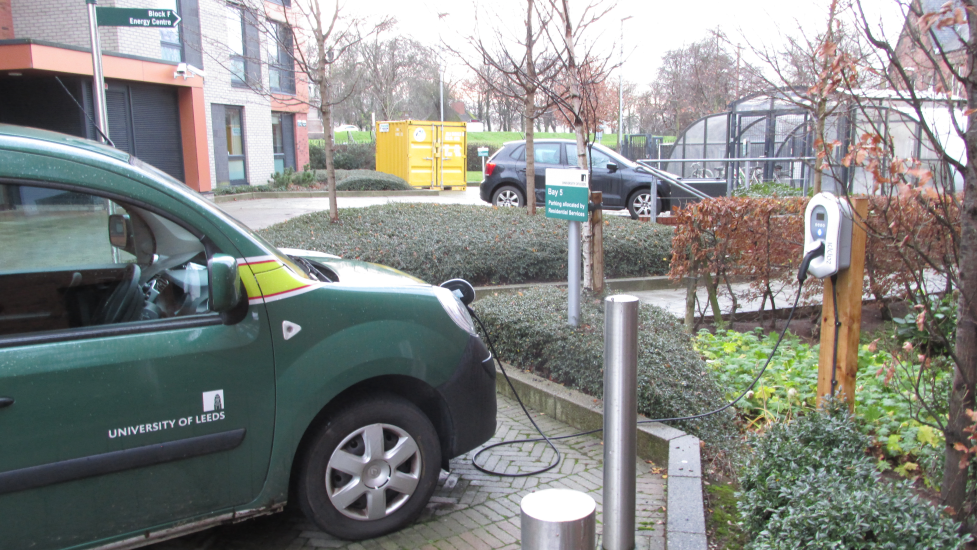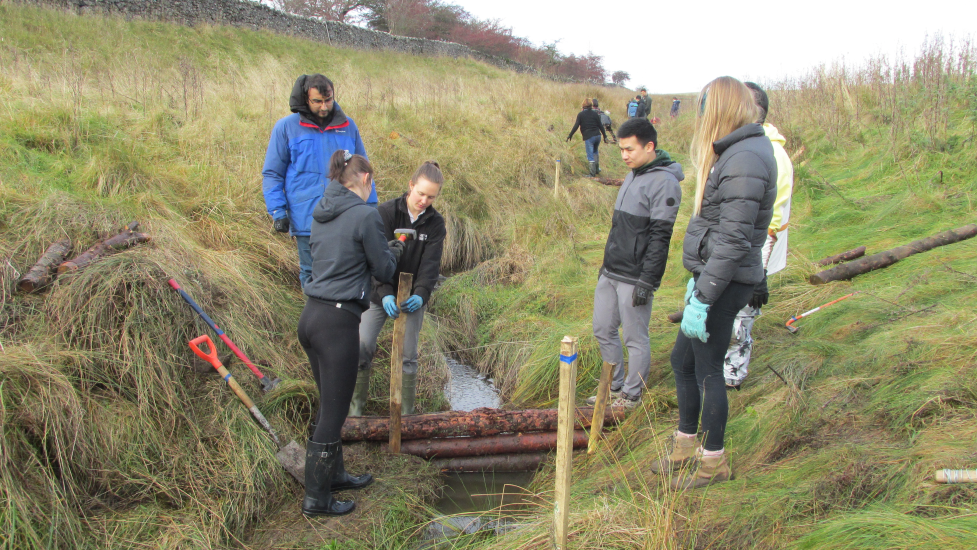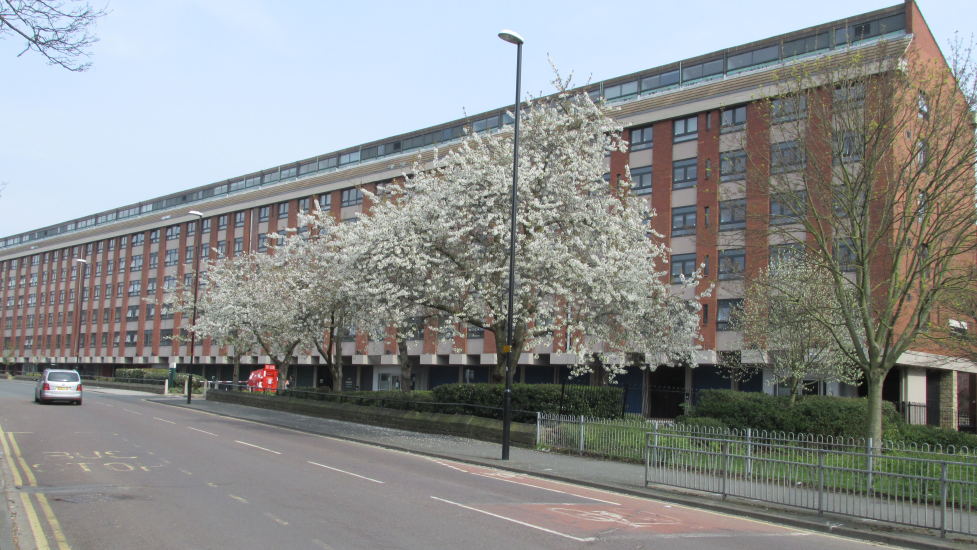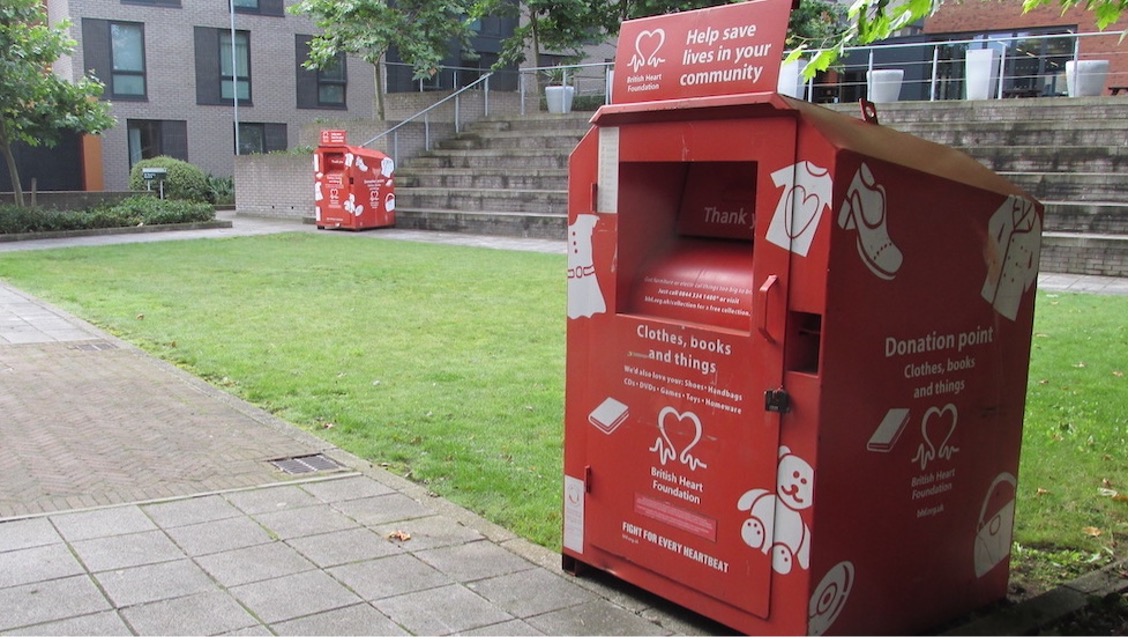
By
Nick Holden
Posted 1 year ago
Thu 14 Mar, 2024 12:03 PM
You may know that one of the University of Leeds' key priorities is working towards a fairer and more sustainable future. As well as the world-leading research and education that takes place at the University, another way this is being driven forwards is with the University’s Climate Plan.
This plan is an ambitious and challenging target and will be the biggest investment Leeds has ever made at £174 million over the next decade. A key part of this plan is going towards the goal of having net zero greenhouse gas emissions by 2030.
Delivering it will be a collaborative effort across the whole University community involving staff and students, including the Residential Services department that runs University accommodation.
Here are four ways your halls are helping to achieve these plans, and how you can play your part when living with us:
1. Finding more energy efficient solutions
As you can imagine there’s a lot of stuff that needs moving around between our different sites. To reduce the environmental impact of this we’ve ensured that 4 out of our 5 vehicles are now electric and try to make sure they do as much of the mileage as possible.
Since 2012 we’ve also been switching to using LED lightbulbs in our accommodation. This work accelerated from 2022 as part of the net zero plan. Amazingly we’ve now installed nearly 20,000 LED lightbulbs across our halls of residence!
This lightbulb moment might seem like a small step, but it’s actually a giant leap for achieving our climate plan! On average a building using LEDs saves 20-25% in electric lighting energy usage. Across all the halls we run directly, that’s a massive saving!
Even though these lightbulbs are more efficient, there’s steps you can take to help us save even more energy. Remember to turn your lights off whenever you’re heading out, and don’t leave the heat up in your room if you don’t need to. You should also try to reduce your water usage by not leaving the shower running when you’re not using it and being mindful of how much water you use to wash up.

2. Improving local biodiversity
We’re always looking to maximise the biodiversity around our halls. Our Student Sustainability Architects have surveyed 12 out of our 14 owned halls and created biodiversity action plans for each.
To implement these plans, we’ve enhanced existing trees and plants and put in new plants that are attractive to invertebrates, birds and other wildlife. This has included work in the Sensory Garden at Charles Morris, the North Hill Well Wood and pollinator-friendly planting in the wildflower meadow between Charles Morris and Lyddon Hall. We’ll be doing more planting across our sites this spring.
These spaces don’t just help to increase the resilience of the natural habitat around us, they also provide real mental health benefits to everyone seeing and visiting them.
If you want to help us continue to improve the biodiversity of residences, then look out for the many outdoor volunteering opportunities we offer during the year. These include helping at our North Hill Well Wood in Headingley and our Wild Work Days collaborating with Yorkshire Wildlife Trust.

3. Geothermal heating
Work started has started at four locations on campus to test the potential of using geothermal heat to heat our campus buildings. This includes sites close to Henry Price and Charles Morris. The emissions associated with heating and powering campus buildings makes up two thirds of what we need to eliminate by 2030 to meet our net zero goal so this is an absolutely vital project.
You can read more about how geothermal heating works and why this is such an exciting project on the Sustainability Service’s website, but by hosting this drilling at our halls we’re making world-leading research possible.
Your hall is your home, and the drilling rigs outside might not be prettiest things to look at, but your patience and understanding whilst this work happens is helping to deliver huge long-term benefits to the sustainable running of campus and beyond!

4. Encouraging the circular economy
We’re passionate about trying to encourage a circular approach to resource use by promoting the need to reduce, re-use, recycle and restore. We have a long-standing partnership with the British Heart Foundation and have their donation banks at each of our sites.
Since 2016 the charity has collected nearly 30,000 bags from these, raising an amazing £400,000 for life-saving research and preventing 234 tonnes of waste from going to landfill. This in turn prevented 5,850 tonnes of C02 emissions!
We also work with a supplier called Bishops Beds who take away our old mattresses and replace them with new ones made of 80% recycled content, with the old ones recycled to make further new mattresses!
There’s loads you can do to help with circular use. When you’re heading back home make sure you donate any unwanted items to the British Heart Foundation rather than throwing them away. You can also invest in reusable items such as bags for life, reusable food containers and water bottles. If you’re getting coffee on campus, you can buy a KeepCup from one of our University cafes. Try to buy from local pop-up shops, charity shops, markets and other community-based retailers. There’s usually over 65,000 parcels received each year into our residences – that's a lot of packaging waste!
If you want to find out more about our work to make halls as sustainable as possible, check out our Sustainable Living Guide and the University Sustainability Service’s website.







